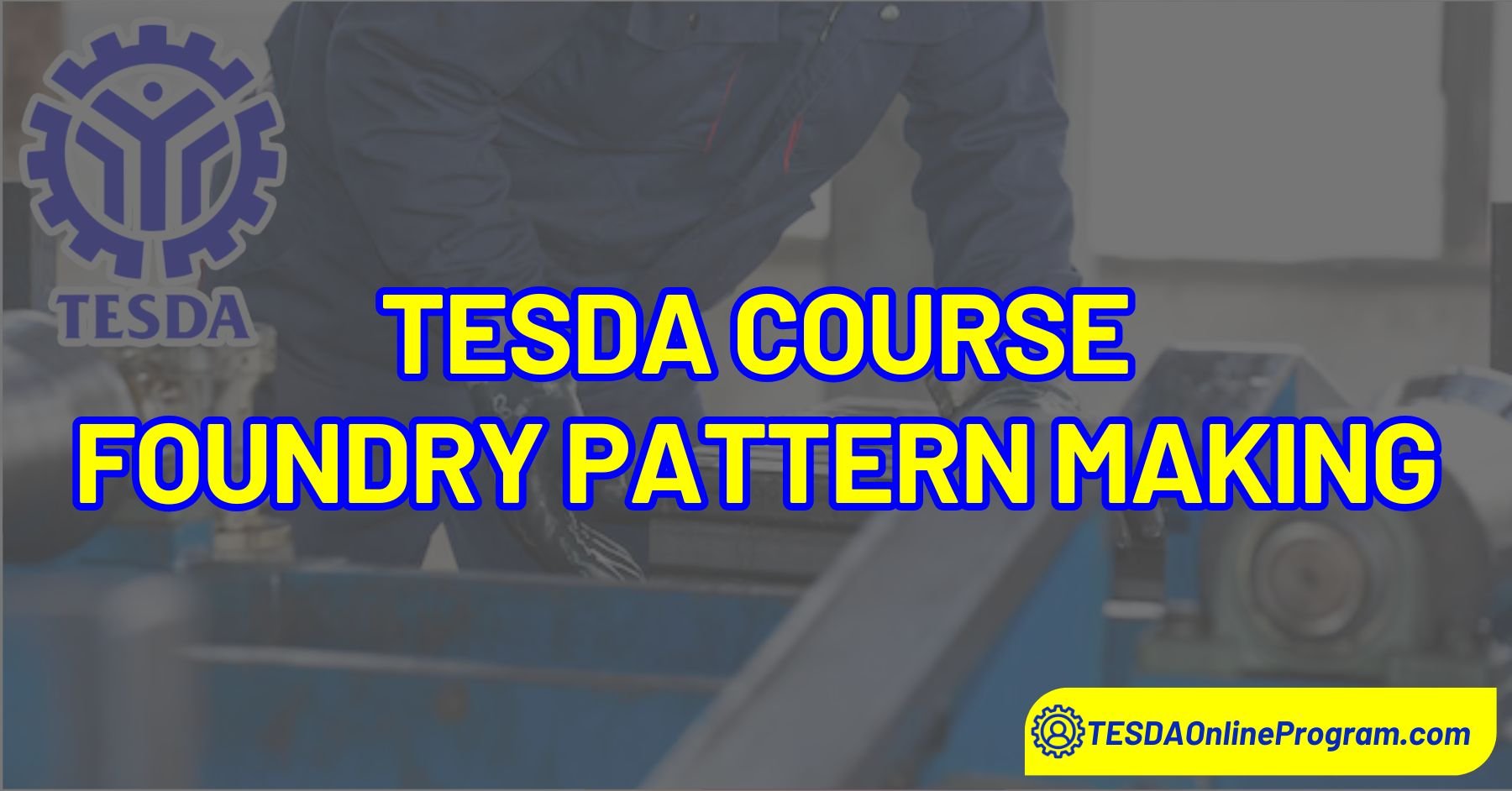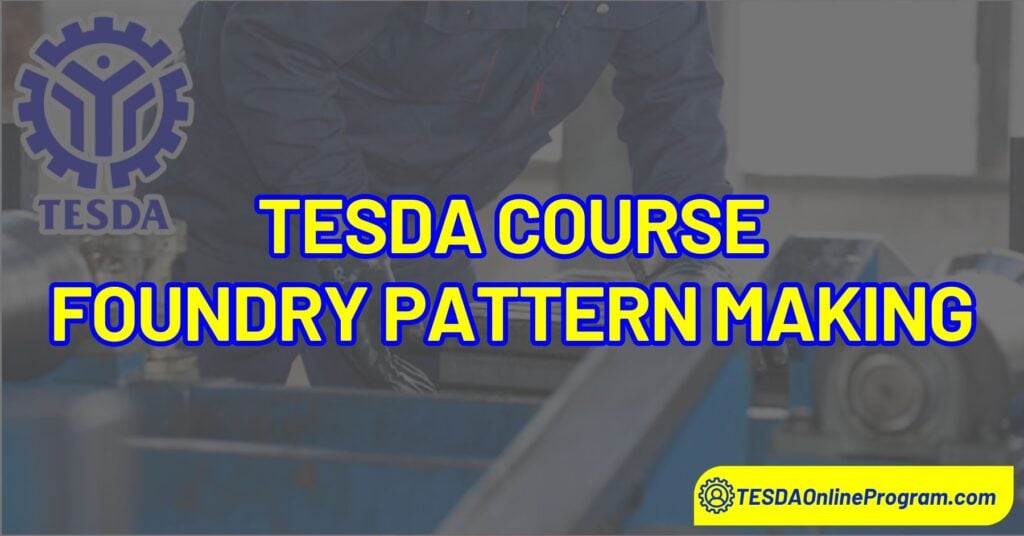The Mold Designing NC IV course offered by TESDA equips aspiring designers with the skills needed to excel in the field of mold design and production. This program focuses on developing the ability to review tools and designs, ensuring precision and functionality in every project. It provides learners with the technical knowledge to create efficient and reliable molds for various applications.
Also read: TESDA Foundry Patternmaking Courses
Through this course, participants also gain expertise in assembling, testing, and debugging complete mold sets. These hands-on competencies prepare individuals for real-world challenges, making them valuable assets in industries that require advanced mold design and manufacturing solutions.

What is Mold Designing NC IV?
This course develops skills in Mold Designing NC IV, covering mold design parameters, CAD operations, simulations, modifications, and creating fabrication drawings to meet industry standards.
Benefits
Taking the Mold Designing NC IV course by TESDA offers several benefits:
- Skill Development: The Mold Designing NC IV qualification consists of competencies that a designer must achieve to perform tasks related to mold design. This can be very useful in various industries, such as manufacturing and construction.
- Knowledge and Attitude: This course is designed to develop not only knowledge and skills in CAD/CAM Operation NC III but also desirable attitudes. These are essential elements for success in any professional field.
- Practical Learning: TESDA’s learning process under the Dual Training System (DTS) is generally described as 40% in-school to learn theories and develop basic skills, and the remaining 60% is on-the-job training. This approach ensures that students are ready for the real-world challenges they will face in their careers.
- Understanding Inter-Relationships: The course helps students understand the inter-relationships of part design, mold design, and quality processing. This holistic understanding can lead to better outcomes in the workplace.
- Employment Opportunities: Companies are increasingly looking for NC holders because having national certifications is a big advantage. It indicates that the holder has undergone rigorous training and assessment, thereby increasing their employability.
Unit of Competency
This qualification is composed of various units of competency, which encompass the following areas of focus:
BASIC COMPETENCIES
- Utilize specialized communication skills
- Develop and lead teams
- Perform higher-order thinking processes and apply techniques in the workplace
- Contribute to the practice of social justice in the workplace
- Manage innovative work instructions
- Manage and evaluate the usage of information
- Lead in the improvement of Occupational Safety and Health(OSH) programs, policies and procedures
- Lead towards improvement of environment work programs, policies and procedures
- Sustain entrepreneurial skills
COMMON COMPETENCIES
- Apply safety practices
- Interpret working drawings and sketches
- Select/ cut workshop materials
- Perform shop computations (Basic)
- Measure workpiece (Basic)
- Perform routine housekeeping
- Perform shop computations (Intermediate)
- Measure workpiece using angular measuring instruments
- Measure workpiece using gages and surface texture comparator
- Perform preventive and corrective maintenance
- Operate a personal computer
CORE COMPETENCIES
- Determine mold design parameters
- Perform CAD operation
- Simulate and verify mold design
- Modify and finalize mold design
- Create fabrication drawing
Sample of Certificate of Completion

Career Opportunity
A person who has obtained this Qualification possesses the necessary competence to fulfill the requirements of the role:
- Mold Designer
Training Duration
- Basic: 47 hours
- Common: 120 hours
- Core: 232 hours
Total: 399 hours
Also read: Full List of TESDA NC2 / NC II Courses
Qualifications
Prospective trainees or students interested in enrolling in this course are required to meet the following qualifications:
- Proficient in computer literacy with a background in CAD.
- Possess a degree in Technology or have successfully completed a foundational engineering course.
- Capable of performing mathematical computations relevant to the shop, including the application of strength of materials.
- Demonstrated industrial experience in mold making with expertise in CNC.
- Effective communication skills, both oral and written.
Requirements
To enroll in this course, you will need the following documents:
- PSA Birth Certificate
- High School or College Diploma
- Certified True Copy of Official Transcript of Records or Form 137
- Certificate of Good Moral Character or GMRC
- 1 x 1 and/or 2 x 2 pictures
To obtain further details, please reach out to the enrollment site that aligns with your requirements. Kindly note that the criteria may vary.
Instructor Credentials
Trainers who will deliver the training on Mold Designing NC IV should have the following:
- Technology graduate in Mechanical Engineering or related field
- National TVET Trainer Certificate Level I (NTTC Level I) holder in MOLD DESIGNING NC IV
- Minimum 3 years of industry experience in Mold Making with working knowledge in CNC programming and operations, or minimum 5 years of teaching experience and 240 hours of relevant training in Mold Design and Fabrication
- Proficient in computer usage
- Minimum 2 years experience using CAD software.
These requirements ensure that the instructor is fully prepared to teach and guide the students towards a successful career in mold designing
Summary
Mold Designing NC IV is a course that equips students with the necessary skills and knowledge to excel in the field of mold designing. It offers several benefits, including skill development, practical learning, and increased employability. The course is composed of various units of competency and requires certain qualifications for enrollment. With competent instructors guiding the students, this qualification can lead to a successful career as a Mold Designer. So if you’re looking to enter the world of mold design and fabrication, enrolling in TESDA’s Mold Designing NC IV course may just be the perfect step towards achieving your goals.
Contact Information
Technical Education and Skills Development Authority (TESDA)
Office Address: BLDG 8, TESDA Gate 2, TESDA Complex, East Service Rd., South Superhighway, Taguig, Metro Manila.
Email Address: contactcenter@tesda.gov.ph
Telephone Number: 8887-7777
SMS Hotline: 0917-479-4370 (text only)
Website: https://www.tesda.gov.ph/
Facebook Page: https://www.facebook.com/TESDAOfficial



